
A referendum on the Annan Plan was held in the Republic of Cyprus and the Turkish Republic of Northern Cyprus on 24 April 2004. The two communities were asked whether they approved of the fifth revision of the United Nations proposal for reuniting the island, which had been divided since 1974. While it was approved by 65% of Turkish Cypriots, it was rejected by 76% of Greek Cypriots. Turnout for the referendum was high at 89% among Greek Cypriots and 87% among Turkish Cypriots, which was taken as indicative of great interest in the issue on the part of the electorates.

The Annan Plan, also known as the Cyprus reunification plan, was a United Nations proposal to resolve the Cyprus dispute. The different parts of the proposal were based on the argumentation put forward by each party in meetings held under the auspices of the UN. The proposal was to restructure the Republic of Cyprus to become the "United Republic of Cyprus", a federation of two states. It was revised a number of times before it was put to the people of Cyprus in a 2004 referendum, and was supported by 65% of Turkish Cypriots, but only 24% of Greek Cypriots.

United Nations Security Council resolution 1117, adopted unanimously on 27 June 1997, after recalling all resolutions on Cyprus, particularly resolutions 186 (1964), 939 (1994) and 1092 (1996), the Council extended the mandate of the United Nations Peacekeeping Force in Cyprus (UNFICYP) until 31 December 1997.

United Nations Security Council resolution 1146, adopted unanimously on 23 December 1997, after recalling all resolutions on Cyprus, particularly resolutions 186 (1964), 939 (1994) and 1117 (1997), the Council extended the mandate of the United Nations Peacekeeping Force in Cyprus (UNFICYP) for a further six months until 30 June 1998.

United Nations Security Council resolution 1218, adopted unanimously on 22 December 1998, after reaffirming all resolutions on the situation in Cyprus, the Council addressed the peace process surrounding the Cyprus dispute and called upon both parties to co-operate with the Secretary-General.

United Nations Security Council resolution 1250, adopted unanimously on 29 June 1999, after reaffirming all resolutions on the situation in Cyprus, particularly Resolution 1218 (1998), the Council addressed the Secretary-General Kofi Annan's mission of good offices in Cyprus.
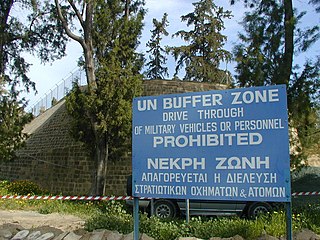
United Nations Security Council resolution 1303, adopted unanimously on 14 June 2000, after reaffirming all resolutions on the situation in Cyprus, including resolutions 1251 (1999) and 1283 (1999), the Council extended the mandate of the United Nations Peacekeeping Force in Cyprus (UNFICYP) for a further six months until 15 December 2000. The resolution also noted that the Government of Cyprus had agreed that, given the prevailing conditions on the island, it was necessary for UNFICYP to remain beyond 15 June 2000.

United Nations Security Council resolution 1331, adopted unanimously on 13 December 2000, after reaffirming all resolutions on the situation in Cyprus, including Resolution 1251 (1999), the Council extended the mandate of the United Nations Peacekeeping Force in Cyprus (UNFICYP) for a further six months until 15 June 2001.
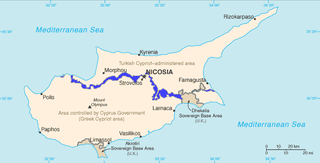
United Nations Security Council resolution 1384, adopted unanimously on 14 December 2001, after reaffirming all resolutions on the situation in Cyprus, including Resolution 1251 (1999), the council renewed the mandate of the United Nations Peacekeeping Force in Cyprus (UNFICYP) for a further six months until 15 June 2002.

United Nations Security Council resolution 1416, adopted unanimously on 13 June 2002 after reaffirming all resolutions on the situation in Cyprus, including Resolution 1251 (1999), the council extended the mandate of the United Nations Peacekeeping Force in Cyprus (UNFICYP) for a further six months until 15 December 2002.
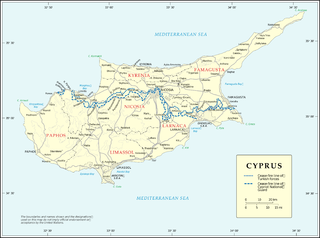
United Nations Security Council resolution 1442, adopted unanimously on 25 November 2002, after reaffirming all resolutions on the situation in Cyprus, particularly Resolution 1251 (1999), the council extended the mandate of the United Nations Peacekeeping Force in Cyprus (UNFICYP) for an additional six months until 15 June 2003.

United Nations Security Council resolution 1486, adopted unanimously on 11 June 2003, after reaffirming all resolutions on the situation in Cyprus, particularly Resolution 1251 (1999), the council extended the mandate of the United Nations Peacekeeping Force in Cyprus (UNFICYP) for an additional six months until 15 December 2003.

The United Nations Security Council resolution 1517 was adopted unanimously on 24 November 2003, after reaffirming all resolutions on the situation in Cyprus, particularly Resolution 1251 (1999), the council extended the mandate of the United Nations Peacekeeping Force in Cyprus (UNFICYP) for an additional six months until 15 June 2004.

Under United Nations Security Council resolution 1548, adopted unanimously on 11 June 2004, after reaffirming all resolutions on the situation in Cyprus, particularly Resolution 1251 (1999), the council extended the mandate of the United Nations Peacekeeping Force in Cyprus (UNFICYP) for an additional six months until 15 December 2004.
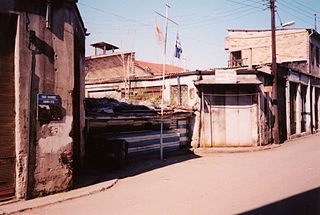
United Nations Security Council resolution 1568, adopted unanimously on 22 October 2004, after reaffirming all resolutions on the situation in Cyprus, particularly Resolution 1251 (1999), the council extended the mandate of the United Nations Peacekeeping Force in Cyprus (UNFICYP) for an additional period until 15 June 2005.
United Nations Security Council resolution 1604, adopted unanimously on 15 June 2005, after reaffirming all resolutions on the situation in Cyprus, particularly Resolution 1251 (1999), the Council extended the mandate of the United Nations Peacekeeping Force in Cyprus (UNFICYP) for an additional period until 15 December 2005.
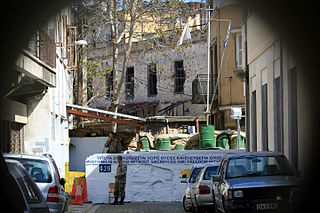
United Nations Security Council Resolution 1642, adopted unanimously on 14 December 2005, after reaffirming all resolutions on the situation in Cyprus, particularly Resolution 1251 (1999), the council extended the mandate of the United Nations Peacekeeping Force in Cyprus (UNFICYP) for an additional period until 15 June 2006.

United Nations Security Council Resolution 1687, adopted unanimously on June 15, 2006, after reaffirming all resolutions on the situation in Cyprus, particularly Resolution 1251 (1999), the Council extended the mandate of the United Nations Peacekeeping Force in Cyprus (UNFICYP) for six months until December 15, 2006.

United Nations Security Council Resolution 1728, adopted unanimously on December 15, 2006, after reaffirming all resolutions on the situation in Cyprus, particularly Resolution 1251 (1999), the Council extended the mandate of the United Nations Peacekeeping Force in Cyprus (UNFICYP) for six months until June 15, 2007.
















